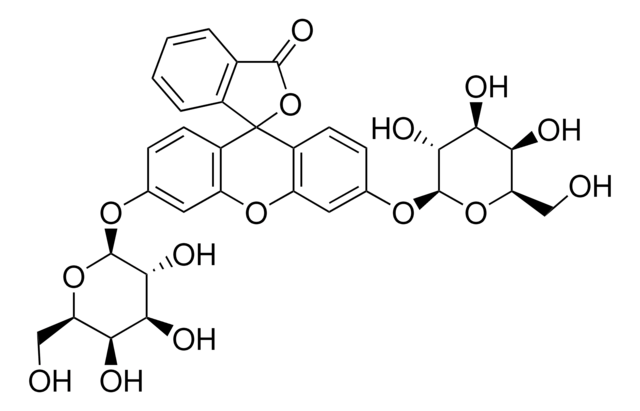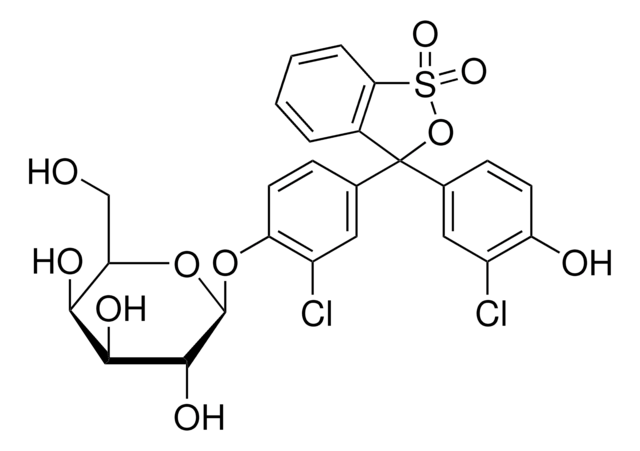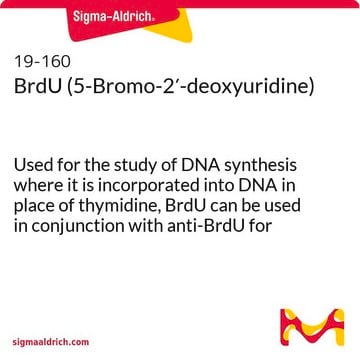R4883
Resorufin β-D-galactopyranoside
~95%, powder
Synonym(s):
3-Phenoxazone 7-(β-D-galactopyranoside)
About This Item
Recommended Products
product name
Resorufin β-D-galactopyranoside, ~95%
Assay
~95%
form
powder
solubility
DMSO: 20 mg/mL, clear, orange to red
storage temp.
−20°C
SMILES string
OC[C@H]1O[C@@H](Oc2ccc3N=C4C=CC(=O)C=C4Oc3c2)[C@H](O)[C@@H](O)[C@H]1O
InChI
1S/C18H17NO8/c20-7-14-15(22)16(23)17(24)18(27-14)25-9-2-4-11-13(6-9)26-12-5-8(21)1-3-10(12)19-11/h1-6,14-18,20,22-24H,7H2/t14-,15+,16+,17-,18-/m1/s1
InChI key
QULZFZMEBOATFS-DISONHOPSA-N
Looking for similar products? Visit Product Comparison Guide
General description
Packaging
Storage Class Code
11 - Combustible Solids
WGK
WGK 3
Flash Point(F)
Not applicable
Flash Point(C)
Not applicable
Personal Protective Equipment
Certificates of Analysis (COA)
Search for Certificates of Analysis (COA) by entering the products Lot/Batch Number. Lot and Batch Numbers can be found on a product’s label following the words ‘Lot’ or ‘Batch’.
Already Own This Product?
Find documentation for the products that you have recently purchased in the Document Library.
Our team of scientists has experience in all areas of research including Life Science, Material Science, Chemical Synthesis, Chromatography, Analytical and many others.
Contact Technical Service








